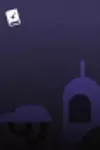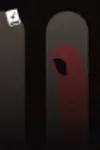
Phil Lemons
The boy continues to love this series. He laughs regularly throughout the story and is always anxious to start the next one.
Recognizing I am not the demographic for this series, I would say this was a fun read, but ultimately I found it not memorable and probably wouldn't read it again. That said, I have gone back to read books I enjoyed at earlier ages and found that they weren't as good as I remembered them.
I'm not entirely sure I understood this story.
The story illustrates a being who discovers its race once lived much longer before the arrival of humans and a new dust that changed the species' lifecycle. This being makes a deal with the humans that will extend its personal lifecycle in exchange for providing the humans what they want, the growth of more plants they like to harvest. Still, this being is determined to teach the next generations to read and write and to understand DNA so they can learn to take control of their own lives and make lives better for themselves without depending on the humans.
This story feels hopeless and hopeful at the same time. There is a sense of not giving up despite the odds. The hope that life in generations future, long after one is gone is a fight with fighting, a life worth living. Even if one never sees the rewards. I wonder if Leckie is trying to help us learn to consider “The Long Game”. To learn to value this world and the life that will live here long after we're gone.
Note that the book has made me think, I like it better!
This story builds up to an emotional end. I am a person who grew up feeling trapped between two cultural worlds and being pulled in both ways, sometimes not knowing who cared and who wanted only to win. I found this story highly relatable and the ending one I at times thought was the only way. I truly hope others in such situations find hope and a way to live free.
The world gets bigger in this second book. We get a peak into the world of Aes Sedai politics.
Overall, this book kept a more even pace throughout than the first. Fewer instances of characters repeating their own thoughts throughout the book. Where book one builds the world and sets the premise, book two seems to stretch out and live in the world, even though new elements are introduced.
I thoroughly enjoy this adventure. This doesn't get a five as I haven't taken away a deeper insights that paint the way I see life and the world.
This is my first P. Djeli Clark reading and I thoroughly enjoy his style. I felt transported to a modernized Cairo at the turn of the 20th century. Further, I enjoyed the organic progression of the protagonist throughout the story. It's not a big character growth, but incremental that I imagine adds to a lifelong journey.
I look forward to reading more of Clark's tales.
This book has a fascinating concept and message. The story was dark and at times brutal. In places more than was good for me. The message gets 5 stars. My emotional response gives 3 stars. I didn't fall into this needing to hear more. Overall, a good book if you like a good philosophical debate/discussion.
I liked this book and I'm glad I stayed with it. The premise appealed greatly to me and the author surprised me by taking a different approach than I expected. I was interested in January's story from the beginning. There are places where I found I got a bit lost and wasn't sure what was happening and how we got there. In the end, I saw the pieces come together and saw the whole picture.
What I took away from this. I won't spill storyline, but will protect from those who don't want the message spoiled. I came away with the message that reading books open us to a multitude of worlds that are diverse in culture and thought. Some are afraid of how these different worlds will influence the world they live in and want to control their world by limiting thoughts and ideas they disagree with or don't understand. Some want to control their world to fit their particular worldview informed by religion or politics or that which threaten their power. That makes this book quite timely.
This book checks my box in making me think. It checks a box in delivering a character I wanted to follow. I did get a bit lost and ran into sections I needed to commit to keep going. The author uses colorful language in the writing that is well done. I recognize the craft while admitting it didn't spark emotions like some other authors do. I would recommend this to those who like a fantastic adventure with a message that is fairly easy to mine.
Our heroes face off against the Nihil once again in a different way. This adds to the overall narrative of The High Republic for those who have been reading. I found I enjoyed the second half much more than the first. That may be timing or just that the second half caught my attention more. In the end, I like learning more about Vernestra and Imri and I'm curious as to what will happen to them next.
This is a Star Wars High Republic book and is a part of an overall plot. However, I would say that this tilts more toward character driven than plot.
I struggled with the number of characters and sometimes knowing which character perspective I was reading from. Some of the characters were hard to solidify in my mind as I'm not as well versed in the different races in the prequel and sequel movies that are represented in this book.
This was a slow start and I wondered if I would continue at one point. However, Older does bring the characters journey into a satisfying and exciting conclusion.
I would not consider myself a person who would enjoy romance novels, but I have come across a number of novels that are heavily romantic that I have enjoyed. Charlie Holmberg has a style that I enjoy and tells a very entertaining story.
I particularly like that the main characters are quite relatable and normal in who they are and how they behave. Albeit, this story is set in the 1840s, and so they behave in a normal way for how people are often portrayed to have behaved in the 1840s.
This is a good one for those who are looking for a story that moves and entertains without needing to keep track of a complex plot.
This one was a slow and challenging start for me. The complexity of an AI inhabiting multiple bodies with multiple perspectives at once. The main character's culture only uses she/her pronouns regardless of a beings sex. I wasn't sure how to picture a number of the characters in the book, including the main character.
What resonated with me in this book is how it portrays the challenges and pressures we face with cultural norms. The way we accept or rebel against them and what motivates us. Sometimes known, sometimes not. Half way through I thought I would not likely read another in the series. Now I'm hooked.
A good chapter-by-chapter breakdown of the art and design used to bring The Mandalorian season two to life. I enjoy reading what the artists have to say as to how they came up with their designs and how and why they evolved into the final product. Also, I love the big pictures of art, such as we see at the end of every episode. I think the print quality of the two page spread pictures were not as good as those from the season one art book. Don't know if that is a matter of the image being blown up so much to fit the pages or if the copy I got just didn't print as clearly as it should have been. Either way, this is a beautiful book.











































